Data
Analytics and Migration
Once you have made the decision to move to better accounting software because your current system no longer meets all your needs. Changing accounting software is a very delicate task and can affect your business operations, so it’s important that you have a plan in place before switching.
You can outsource this process to Fin-eX as we have helped many clients over the years to shift to different software. Migration is a tedious and unrewarding task, you can reduce the cost and improve the efficiency of it by outsourcing the process to us.
There are some key elements to consider when undertaking the migration processes. Fin-eX has prepared a free guideline to help you out.

But when is a good time to switch to a new accounting system?
The ideal time to move your data to new software is usually at the end of the fiscal year. For a smooth transfer, you must also plan for a transition phase. This will begin several months before the final migration date. Even before this transition, you will need to set aside time to back up existing data. This will act as a checkpoint for you to start over if things go wayward.
It’s important to conduct several checks and determine if there are any errors in your current data. This is also a good time to clean up unwanted data and rectify glitches so that you don’t carry them forward into the new system.
These preparations take time, but sticking to a final migration date will relieve some of the stress surrounding the change and cater to long-term results.
10 Simple Steps to Transition to New Accounting Software
So you are settled on migrating, and you have chosen a date. Now, follow the below steps to transition to new accounting software.
1. Finalize a cutoff date
The cutoff date is when you start using the new system and discontinue using the previous accounting system. Although you can be flexible to choose any date, it is a good practice to do bank reconciliation at end of one month and start using new software on the first day of the next month.
2. Inform your accountant
Keep your accountant updated about your decision. Their expertise may even help you choose the right package for your business. They must be comfortable using the software or at least be able to export the necessary information.
3. Research and shortlist the right fit
Know your requirements before you start looking for software. Make use of free trials and see how comfortable you are with different products. Look out for additional useful features, like cloud computing, which you might use as your business grows.
4. Audit your IT infrastructure
Software is only half of the equation. You need to check if the new software is compatible with your existing hardware. If your existing infrastructure can’t run the software you’d like, you might have to settle for the next best option or upgrade your hardware. Remember that just because the software is expensive doesn’t mean it’s the best. There are better systems that work well on all browsers and don’t have specific hardware requirements.
5. Back up your data
Before you make a system shift, ensure that your data is backed up and readily available. If something goes wrong while migrating, you won’t lose important information.
6. Do a trial run
Before shifting all your data to the new system database, run a trial balance or create a balance sheet, and save it. Doing so will ensure the information is computed properly by your chosen software.
7. Define quantifiable goals
Quantifiable goals are ones that regularly track business performance. Defining these goals will help management during the planning, implementation, and control phases of the software transition. It’s an important step because it helps you decide the best data format for achieving these objectives and planning future steps.
8. Format and map your current data
Different accounting systems support different data formats when recording information. Before transfer, your data must be error-free and saved in the recommended format. A lot of businesses choose to create a backup on Excel, but the data on these spreadsheets is vulnerable to tampering and transcription errors.
Creating a data map ensures a hassle-free transfer because you know how your information will look in the new format.
9. Test imported data
You must run tests on the imported data to check if the software works optimally with minimal errors. You can also compare the reports from your old system with the new ones to check for discrepancies.
10. Train your users
Allow enough time to train and test your users before executing the new accounting system. Provide standard system procedures to learn the new software, and make sure that users comply to it. This will help you avoid major glitches caused by small issues like inaccurate data entry.
Run your business smoothly
Now that you have an accounting system migration checklist in your possession, try following it without missing any steps. Learn and understand more about the accounting software that you have shortlisted. Think about different software packages and choose the one that makes the cut. Fin-eX also helps you in choosing a good cloud accounting system that is time-saving, safe and can help you view all your financial records in real-time.
Benefits of Outsourcing
your work to Fin-eX

01.
Reduced Employee Retention Risk
If the person in charge of your accounting and bookkeeping were to leave your business, you’d be left trying to fill in the gap. This would likely involve recruiting, hiring, training, and onboarding a new employee—as well as the costs that go along with these activities. What’s more, if you were to rely on just one person, the risk of fraud and theft could be an issue as well.

02.
Opportunity To
Grow
The price of putting an unqualified or inexperienced staff member in charge of your operations can be grave—even if you rely heavily on accounting software. If the information put into the software isn’t accurate, you won’t be able to rely on it to make important decisions. Outsourcing your accounting gives you peace of mind knowing that experts are in charge.

03.
Qualified Accountants
When you outsource your accounting to a third party, you have access to not just one person, but to a team of professionals. In other words, you have a deep well of expertise to tap into when you need it. With the right firm in place, you can have the skill set of an experienced accountant or a team of accountants at your fingertips. Most if not all of the employees hired by Fin-ex are ACCAs or ACAs with a lot of experience in UK accounting and tax matters. Get a turn key support from us.
You should feel confident you have the most capable person in this role. But the truth is, sometimes this can be hard to know for sure. For instance, you may have outgrown the current capacity of your in-house accounting team without realizing it. Outsourcing is especially beneficial in this case because it gives you the ability to match your financial professionals to the needs you have today—as well as those you may have tomorrow.
Our company is working with Fin-eX for more than a year now. We started out with adhoc work where we engaged with them depending on the work in hand. This slowly progressed to a dedicated resource and now we have a whole team working as sort of a back office. Bookkeeping and admin tasks are now processed on real time basis despite the time difference. We have had very productive meetings with their senior staff and found them to be very helpful.
Outsourcing our work to Fin-eX has been a good business decision for my small CPA firm. I do not need to worry about processing small tasks and can focus on giving qualify advise to the clients. I have started engaging with more potential customers due to the time saved.
Very well managed. My initial effort was spent in training and communicating with their staff. Took a few weeks for them to understand our process. Now we are very happy with how the work is progressing.
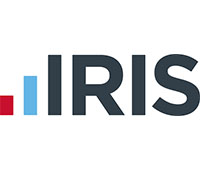



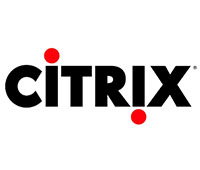
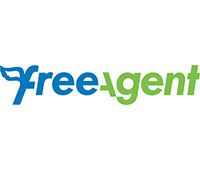





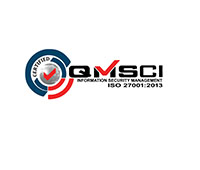

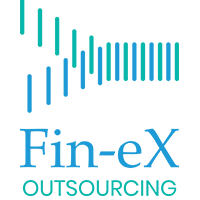

When we took the free trial – we were a bit sceptical about the whole outsourcing process. There were some initial hic-ups as I am very particular about providing high-quality services to my clients. Their senior managers were in constant communication with me almost 24/7. I was able to streamline the whole process and now am very pleased with their service.